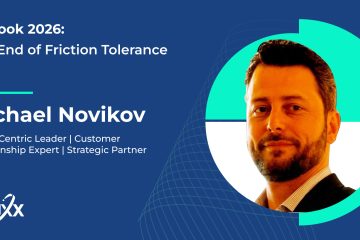Robinhood’s recent acquisition of Pluto Capital, a FinTech specializing in AI-driven investment strategies, has sent a clear signal to Wall Street: AI is becoming a key technology investment for capital market firms.
This move is not an isolated incident; it underscores a broader trend in which AI is gaining ground for its role in advanced data analytics, automated regulatory compliance, and improved customer service.
But the critical question remains: Can AI partnerships deliver tangible business ROI, or are we witnessing another wave of tech-driven exuberance?
Let’s begin by understanding how and where AI fits into the current value chain.
Where Does AI Fit (or Doesn’t) in Brokerage Firms?
Although versatile, the applicability of AI in brokerage seems somewhat patchy.
Of course, its biggest draw lies in its processing speed; in its ability to rapidly analyze massive datasets. BlackRock’s Aladdin uses AI to process trade data (integrates data of over 30,000 companies across nearly 160 countries, carrying out around 250,000 trades daily) and provides actionable insights for investors.
However, data accuracy still remains a challenge. Data extraction and AI experts call for caution when using AI models to parse data from public company documents such as SEC filings.
Data quality is another critical issue, with many firms struggling to harness the vast amounts of data required for effective AI implementation. Additionally, the need for specialized AI talent and ongoing regulatory compliance further complicates the ROI equation of these AI partnerships.
Looking at the Bright Side of AI Partnerships
Customer-Centricity
One of Gen AI’s most compelling benefits is its potential to enhance customer experience. Through chatbots and personalized services, Gen AI can improve customer interactions by offering quick, responsive, and intuitive services, ensuring brokers keep their eye on the ball when it comes to customer satisfaction.
Deutsche Bank‘s partnership with NVIDIA in 2022, a multi-year innovation collaboration, leverages NVIDIA’s AI expertise to develop virtual avatars, speech AI and fraud detection systems to enhance customer interactions and boost operational efficiency. NVIDIA’s AI Enterprise software is equipped with tools for risk management and also ably supports Deutsche Bank’s cloud transformation journey (leverages AI and ML to simplify and accelerate cloud migration decisions).
Client Onboarding and Workflow Orchestration
AI can streamline the client onboarding process, simplifying know-your-customer (KYC) and due diligence tasks, expediting onboarding times and minimizing error margins.
With AI partnerships, brokerages can automate their internal operational processes while providing humans with smart tools to enhance their job performance. Tools that can improve work orchestration by analyzing email traffic and proactively allocating work activities offer immediate efficiency gains in brokerage operations.
Expert Take
Many brokerage firms partnering with AI companies are doing so out of a fear of being left behind or left out, without a strong case for ROI—something like an “implement AI and they will come” Field of Dreams approach. While this provides access to newer technology and some proof of concept, these implementations often lack the depth needed for impactful outcomes.
In contrast, an acquisition like Pluto Capital allows Robinhood to fully harness and tailor AI capabilities directly to their trading platform’s needs – something that’s critical in a compliance-heavy, accuracy-centric financial setting. The current backbone of Robinhood’s income comes from transaction fees and interest – so the addition of Pluto’s AI capabilities (not just for back-end analytics but as front-line, customer-facing stuff to enhance user experience) introduces lucrative advisory and asset management fees. Beyond adding another income source, it’s also laying the groundwork for a multifaceted, resilient financial ecosystem that promises long-term shareholder value.
More firms will follow suit and demand more from their AI investments in the near future, requiring a strategy that ensures real, tangible growth and bottom-line results. Ownership of the technology is ultimately important; therefore, building AI in-house is an option, but it is not very sensible. With many films like Pluto already successfully running these programs, it makes sense for firms to stick to their primary expertise in trading, and increasingly go for acquisitions, not just partnerships, as the next wave of AI implementation occurs.


